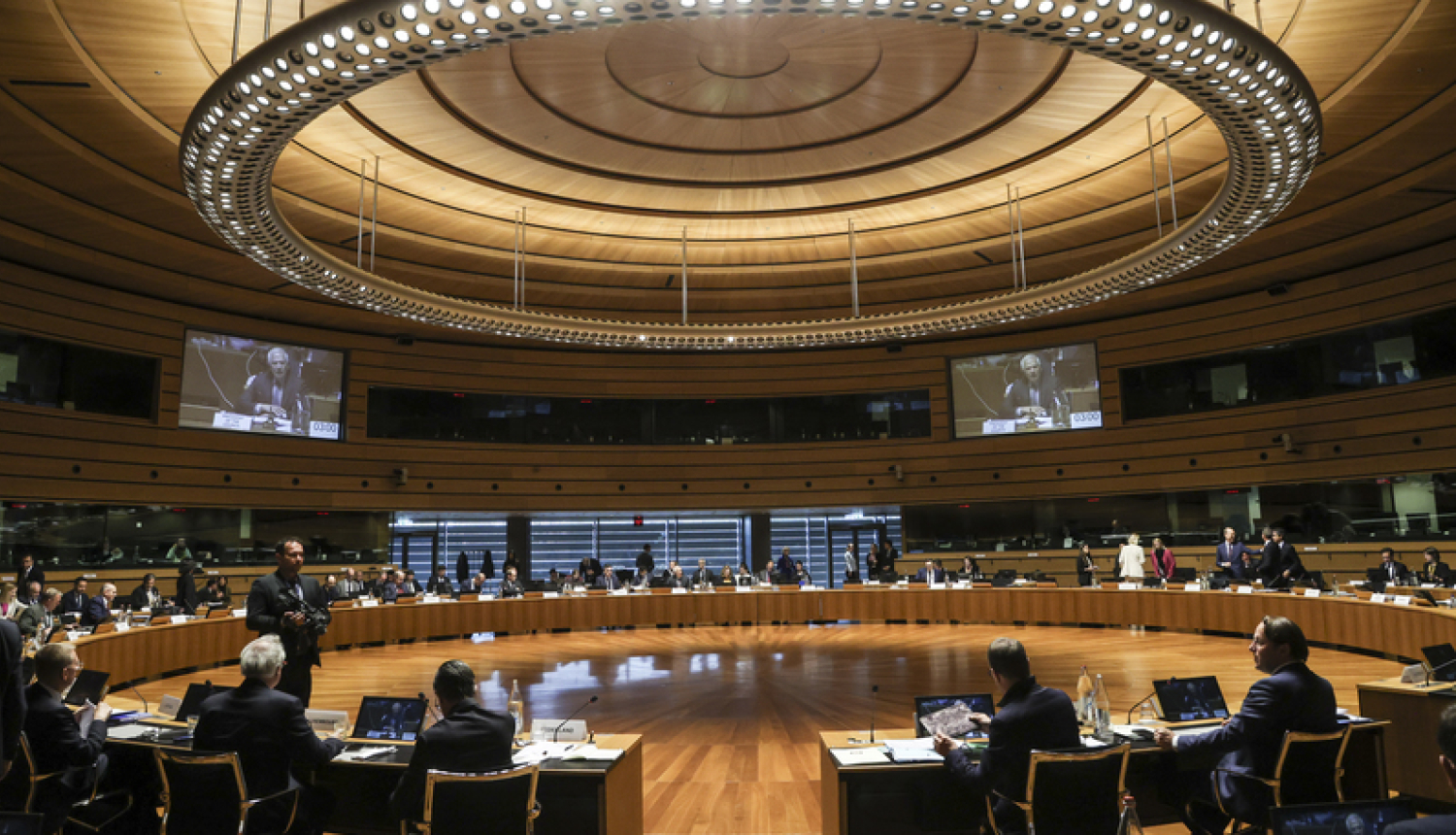On 24 April 2023, the Minister of Foreign Affairs of Latvia, Edgars Rinkēvičs, took part in the meeting of the Foreign Affairs Council of the European Union in Brussels, at which the Member States discussed the Russian aggression against Ukraine, the EU Action Plan on the geopolitical consequences of the Russian war of aggression, the latest situation in Sudan and other topics of current importance.
The meeting also included a meeting of EU Foreign Ministers with the Minister of Foreign Affairs of Georgia, Ilia Darchiashvili, for a discussion on the internal political situation in Georgia and progress made by Georgia in the process of integration with the EU. Meetings were also held with the Secretary General of the Council of Europe Marija Pejčinović Burić, and the Minister for Foreign Affairs of Iceland, Thórdís Kolbrún Reykfjörd Gylfadóttir.
During a discussion on Russian aggression against Ukraine, Edgars Rinkēvičs called on the EU not to delay providing military support to Ukraine. We must be quick and pragmatic in implementing the decisions we have taken to give military support to Ukraine, he said. Bureaucratic deliberations should not hinder the delivery of ammunition and weapons to Ukraine at this critical time, the Foreign Minister stressed. At the same time, Edgars Rinkēvičs invited the European Union Satellite Centre to share with Ukraine satellite photos on developments in the Ukrainian border area.
The minister also condemned the conviction of the Russian opposition politician Vladimir Kara-Murza on politically motivated charges. Edgars Rinkēvičs called for the continuation of a strict sanctions policy, both by introducing new sanctions, including against those who are co-responsible for the persecution of Vladimir Kara-Murza, and by ensuring an effective implementation of restrictive measures already in place, and preventing their circumvention.
Discussing the implementation of the EU Action Plan on the geopolitical consequences of Russia’s aggression against Ukraine, Edgars Rinkēvičs noted the need for the EU to actively work on countering Russia’s narrative and to intensify contacts with third countries. The Minister pointed out that the EU needed to regain the trust and support of many third countries, which upon the start of the war in Ukraine have expressed alarm at the decline in the EU’s attention and engagement. Edgars Rinkēvičs drew attention to the fact that Latvia had intensified contacts with third countries, especially in Africa, and he also urged other EU Member States to be active in explaining the real reasons behind Russia’s invasion of Ukraine and the actions of EU Member States to address the global food security crisis deliberately triggered by Russia. At the same time, the Minister noted that third countries should also work to prevent circumvention of sanctions imposed against Russia.
During a discussion with the Foreign Minister of Georgia, Ilia Darchiashvili, Edgars Rinkēvičs emphasized that Latvia continued to support Georgia on its path towards EU integration. However, Georgia’s political elite must be aware of the country’s commitment to follow EU values and norms, as well as implementing irreversible reforms to demonstrate progress in the process of its integration with the EU, which is supported by the majority of Georgian society. The minister also noted that Georgia should guarantee respect for former President Mikhail Saakashvili’s rights while in detention, in line with Georgia’s international commitments.
In an exchange of views on the topics high on the Council of Europe’s agenda, Edgars Rinkēvičs expressed readiness to work during the forthcoming Latvian Presidency of the Council of Europe’s Committee of Ministers to strengthen the unity of the CoE Member States, including on politically sensitive issues. Edgars Rinkēvičs voiced his determination to continue supporting Ukraine in every way and to stand up for Russia to be held accountable internationally, including for the crime of aggression. The Minister also expressed his support to the CoE for its work on establishing a register to record and document evidence and claims for damage, loss or injury as a result of Russian aggression against Ukraine.
While in Luxembourg, Edgars Rinkēvičs together with the Baltic States Foreign Ministers also met with the Prosecutor General of Ukraine, Andriy Kostin, with whom they discussed issues related to the prosecution of Russia and its representatives for the acts of aggression against Ukraine and war crimes committed.
Photo: European Union




